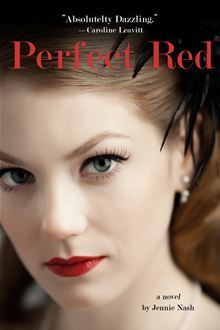Guest Post: Three Ways Authors Can Put Jealousy To Work! By Jennie Nash
There’s a lot to think about in the guest post below. Author Jennie Nash lays it on the line. She’s jealous and she’s not afraid to say so, or to use that to her advantage. Whether you find yourself jealous of your colleagues or not, there are some wise words below for writers to motivate themselves to keep on keepin’ on, no matter what.
In my case, I searched my soul and psyche and can tell you that I’m not jealous of anyone’s writing or publishing success. I’m jealous of people who can eat a whole cake and not gain weight. I’m jealous of nice rich people (not so much the mean ones). But writers? Nope. Not now anyway. But I do see Jennie’s points and how we can be pushed to better ourselves when someone is doing what we aspire to do, or has what we (think we) want.
Please welcome Jennie Nash to Women’s Fiction Writers!
Amy xo
P.S. Don’t be jealous that Jennie has a guest post on WFW. If you have an idea for a guest post, just email me and we’ll see if it fits. As long as it’s about writing, and non-promotional, I’m happy to consider it for Fall/Winter 2013.
Three Ways Writers Can Put Jealousy to Work
by Jennie Nash
 On the front cover of my latest novel – my seventh book – there is a blurb from the great novelist Caroline Leavitt. “Absolutely dazzling,” it says. It’s part of a longer quote that appears on the back of the book, which includes more specific and awesome praise. I have never met Caroline Leavitt, but we are cyber-friends, she is good friends of a writer friend of mine, and she taught in the writing program at UCLA where I teach, which is how I ended up with the killer blurb. Also, Caroline is among the most generous and engaged writers you will ever meet and she’s the kind of super nice person who would read the manuscript of someone she’s never met, and email every few hours to squeal with delight to tell that writer how much fun she’s having with your story. When I received her blurb, I had the highest hopes for my book – and I mean high. Caroline Leavitt herself had recently been on The New York Times bestseller list, boldly switched publishers, landed a juicy deal, and found the kind of career transforming support she needed to keep writing her books — and I wanted to orchestrate a similar move. Caroline Leavitt was my proof that it could be done. She was my North Star.
On the front cover of my latest novel – my seventh book – there is a blurb from the great novelist Caroline Leavitt. “Absolutely dazzling,” it says. It’s part of a longer quote that appears on the back of the book, which includes more specific and awesome praise. I have never met Caroline Leavitt, but we are cyber-friends, she is good friends of a writer friend of mine, and she taught in the writing program at UCLA where I teach, which is how I ended up with the killer blurb. Also, Caroline is among the most generous and engaged writers you will ever meet and she’s the kind of super nice person who would read the manuscript of someone she’s never met, and email every few hours to squeal with delight to tell that writer how much fun she’s having with your story. When I received her blurb, I had the highest hopes for my book – and I mean high. Caroline Leavitt herself had recently been on The New York Times bestseller list, boldly switched publishers, landed a juicy deal, and found the kind of career transforming support she needed to keep writing her books — and I wanted to orchestrate a similar move. Caroline Leavitt was my proof that it could be done. She was my North Star.
I have every reason to love and adore this woman – and yet right now I can’t even read her posts on Facebook without feeling my stomach clench. Every morning when I sit down to my desk to work, Caroline Leavitt mocks me from my favorite industry blog, where her latest novel – Is This Tomorrow – is being touted in a snappy ad. I’m afraid to go into a bookstore because I just know that her book is going to be stacked on the front table, with a charming handwritten note from one of the members of the staff. I’m afraid to talk to our mutual friend because the last time we chatted, I heard that Caroline had sold her next novel to her super supportive awesome publishing house. And my novel? The one Caroline blurbed? It’s not in the bookstore. It’s not on the excellent blog. Unless something remarkable happens that’s out of my control, my book has died on the vine, and meanwhile Caroline Leavitt is stomping on grapes and making jubilant wine.
Do I sound a tad bit jealous? You bet I am and I’m not going to pretend otherwise, and neither, I believe, should you. Jealousy can be good. If handled the right way (which is to say without any damaging public rants, brooding bouts of melancholia, or Soliere-like criminal insanity) it can be like rocket booster fuel for your writing career. Here’s how:
1. Jealousy is a reminder that you’re doing something you care about.
Writing a book is a long, hard, difficult lonely undertaking. Why do it, if you don’t care about it with a fiery passion? It would be far easier and more pleasant to grow heirloom tomatoes or take up paddle boarding. My jealousy proves to me that I’m nowhere near ready to throw in the towel. Oh sure, I went through some weeks of claiming that I was going to quit writing, of claiming that it was just too painful, of claiming that I was done with this fickle business where you can pour out your heart and soul and get nothing but silence in return. But I wasn’t fooling anyone, least of all myself. In The Happiness Project, Gretchen Ruben says that failure is “part of being ambitious; it’s part of being creative.” Jealous, too. So if you’re feeling jealousy of another writer, consider it a good thing. It means you’re found something that matters to you.
2. Jealousy shows you specifically what you want, and specificity is critical in setting and reaching goals.
Every writer needs to constantly be evaluating and setting goals, on both a small scale and a large, and they should ideally be SMART goals (specific, measurable, achievable, relevant and time-bound. Here’s a fast and clear explanation on all that from the human resources department at MIT.) In the beginning of a book’s creation, your goal might be, “Write 3 pages a day.” In the beginning of a career, it might be, “Send out 3 queries a week to agents who represent the kinds of books I write” or, “Blog once a week about my book topic.” In the middle of a career, when you know you can spin a good tale, you know you can do the work required to get it on the page, and you already have a great agent in your corner (which is where I am), things tend to get a little muddy. My jealousy of Caroline Leavitt has helped give me focus. I know more specifically what I want, and I have a clearer idea of what I need to do to get there. What does your jealousy show you about what you want? How can you translate that into action?
3. Jealousy gives you something to prove.
I’m not just staying in the game; I’m staying in it to win. I’ve got a chip on my shoulder. I’ve got something to prove. I am worthy of big juicy support. I can write a novel that lots and lots of readers love. Watch me. And if it doesn’t work? As any good novel proves, a character with a strong motivation is, if nothing else, a character with a good story, so I may not pull it off, but at least it will be an interesting journey.
What about you? What do you have to prove?
 Jennie Nash is a writing coach, whose most recent novel is Perfect Red. She has a special offer on her website for readers of Women’s Fiction Writers – a free sneak peak of her forthcoming book, The Writers’ Guide to Agony and Defeat. Visit her at jennienash.com to check it out and use the password WFW6.
Jennie Nash is a writing coach, whose most recent novel is Perfect Red. She has a special offer on her website for readers of Women’s Fiction Writers – a free sneak peak of her forthcoming book, The Writers’ Guide to Agony and Defeat. Visit her at jennienash.com to check it out and use the password WFW6.


Women's Fiction Writers
- Amy Sue Nathan's profile
- 543 followers



